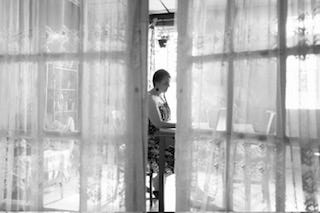I’m realizing
how unimaginative I feel–and how sad that makes me. Once upon a time, like basically every child (I hope), I regularly visited worlds of make-believe. In the corner of my bedroom, I created intricate societies for my Polly Pockets. My friends and I assigned each other roles to play as we improvised our way through scenarios: “I’ll be the mom and you’re my kids and we just found out . . .” Within the course of just a few hours, I would write–and direct–three-person plays that I’d cajole (force?) my younger brothers to rehearse and perform for our family members.
At no point did calling on my imagination feel like a challenge. A waste of time. The least desirable of my options.
No, I’m not alone or original in being a grown-up who misses the lush imaginative lands of childhood. But I am a writer–a literary artist!--and in my understanding of art, imagination has always been at the epicenter, or thereabouts.
And yet.
Over the years, I’ve become so intentional with my writing that I’m realizing I’ve gradually pushed imagination farther and farther from my focus. I don’t play anymore; I plan. I’m strategic about which pieces I submit where. Before that, I labor over punctuation and paragraph breaks. And before that, I invest enough mental energy into finding and arranging the right words that sometimes I physically exhaust myself.
All of this is necessary, of course–especially now that I’m relying on writing to make my living. But taking my writing seriously should not exclude feeling imaginative while I work. I can meet my deadlines and also let my mind roam along paths of possibility. More than a business, a discipline, an opportunity to process, writing is an art. I want–need–to honor that.
I don’t really know my next steps yet; I’d like my relationship with my imagination to be reignited organically. But now that it’s on my radar, I hope I’ll start noticing opportunities that have probably been here all along, and that I was too unnecessarily vigilant to notice.
I’m writing
a few things at once. Thanks to Jami Attenberg’s recent #1000wordsofsummer, I started several new vignettes during the last half of June. In the spirit of being imaginative, I’ve been playing around with different structures than I usually use, though I can’t tell yet if I’m happy with any of these new attempts.
I’m reading
Chain-Gang All-Stars, which reminds me of one of my favorite books of not only 2023, but ever: Our Missing Hearts. Both are dystopian in a way that is alarmingly easy to imagine. Adejei-Brenyah’s commentary about the privatization of the American prison industrial complex is troubling, true, and should be read widely.
I’m recommending
This episode about writing “imaginative fiction” on the Write-minded podcast. I don’t own the book they discuss in this interview (yet), but it sounds like a useful tool in prodding my imagination awake.
A strategy I used in my classroom, which is the basis of the book Perspective: Baltimore. To encourage my lovelies to incorporate sensory language in their narratives, I’d show them various images, asking them to write about not what they see, but what they imagined they’d smell, taste, hear, feel in those settings.
Extremely Loud and Incredibly Close. This was one of my all-time favorite books to teach; Foer’s imagination is apparent not only in the plot, but in this novel’s structure and illustrations. In fact, it’s so creative I don’t even know the language to describe parts of it. Reading this novel reminds me: imagination in action is refreshing.




